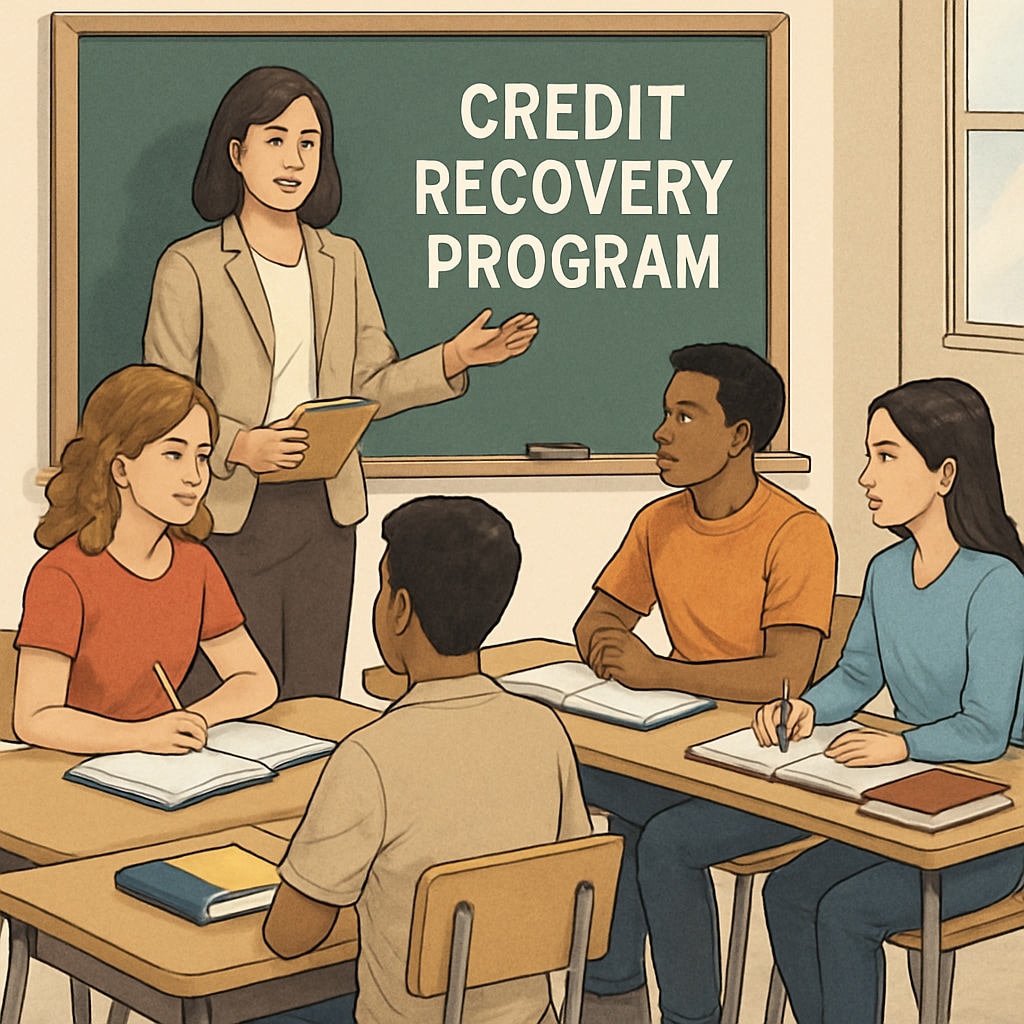Severe credit deficiencies can feel overwhelming for high school students, especially those with only two years left to graduate. However, with determination, strategic planning, and alternative learning methods, students can recover credits and get back on track for graduation. This article explores practical solutions to help struggling students navigate this challenging situation and achieve academic success.

Understanding Credit Deficiencies: Causes and Impact
Credit deficiencies occur when students fail to meet the required number of academic credits necessary for graduation. This can stem from poor academic performance, missed classes, transferring schools, or external challenges like health issues. Without intervention, these deficiencies can jeopardize a student’s ability to graduate on time, potentially delaying their future education and career plans.
To address this issue effectively, students and families must first understand the root causes of the deficiencies. Collaborating with school counselors, teachers, and administrators is essential for creating a tailored recovery plan.
Practical Steps to Recover Credits
Recovering credits requires a proactive and multi-faceted approach. Here are some effective strategies to help students catch up:
- Enroll in Credit Recovery Programs: Many high schools offer credit recovery courses during the school year or summer. These programs are specifically designed to help students retake failed classes or earn extra credits.
- Consider Online Learning Options: Online platforms such as Khan Academy or accredited virtual schools allow students to complete coursework at their own pace. These flexible options can be particularly valuable for students balancing other commitments.
- Supplement with Evening or Weekend Classes: Some schools and community colleges provide evening or weekend classes for students needing additional credits.
- Utilize Independent Study Opportunities: Students may be able to work with their school to complete independent study projects for credit in specific subjects.
By combining these options, students can accelerate their progress while maintaining a manageable workload.

Building a Strategic Plan for Graduation
Recovering credits within two years requires careful planning and consistent effort. Here’s how students can strategize their academic recovery:
- Set Clear Goals: Identify the total number of credits needed and break them down into achievable milestones for each semester.
- Create a Balanced Schedule: Avoid overloading yourself with too many courses at once. Focus on a mix of core academic subjects and electives to maintain balance.
- Monitor Progress: Regularly review grades and completed credits to ensure you’re on track. Adjust your plan as needed with guidance from counselors.
- Stay Motivated: Celebrate small victories, such as passing a challenging course or earning a credit. Positive reinforcement can boost your confidence and keep you focused.
Leveraging Support Systems
Recovering from credit deficiencies is not a journey students need to take alone. Support systems play a critical role in academic success:
- School Counselors: Counselors can help identify suitable programs, track progress, and provide emotional support.
- Parents and Guardians: Family members can encourage students, assist with time management, and ensure accountability.
- Peers: Friends or classmates facing similar challenges can provide motivation and create a sense of community.
In addition, students should seek opportunities to connect with tutors or mentors for academic guidance in challenging subjects.
Maintaining Balance During Recovery
While recovering credits is important, maintaining overall well-being is equally crucial. High school students should prioritize their mental and physical health by:
- Setting aside time for relaxation and hobbies.
- Getting enough sleep to support focus and learning.
- Eating nutritious meals to fuel their brain and body.
- Seeking professional help if they feel overwhelmed or stressed.
Balancing academics and personal well-being ensures students can stay motivated and perform their best.
Conclusion: Turning Challenges into Opportunities
Although credit deficiencies can seem like an insurmountable obstacle, they also present an opportunity for growth and resilience. By leveraging structured plans, alternative learning options, and strong support networks, high school students can recover credits and graduate on time. Remember, success comes from consistent effort and a positive mindset. Start today, and take the first step toward achieving your academic goals!
For more information on credit recovery programs: Visit Alternative Education on Wikipedia or Education Systems on Britannica.


